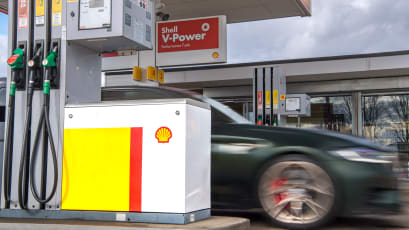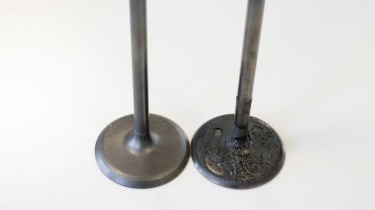
Why high octane means higher performance
Shell's new and improved V-Power fuel helps get the most out of your performance car's engine – this is the science behind it
A high-performance car requires a high-performance fuel, correct? This may sound obvious, but how many car enthusiasts really know how so-called super-unleaded petrol – or, more accurately, a high-octane fuel – actually behaves inside an engine, and why it makes a difference to your car?
Shell’s latest formulation of Shell V-Power is rated at 99 RON, making it ideal for the sort of driver’s cars that regularly grace the pages of evo. Let’s find out why.
Octane: what does it mean?
In the UK, the octane rating of fuel is measured by the RON system, or Research Octane Number. To work out a fuel’s octane rating, it is tested in a variable-compression engine to determine its ability to resist detonation caused by compression rather than by a spark plug – a phenomenon known as ‘knocking’.
The test fuel’s results are then compared with those of various blends of iso-octane and normal heptane run in the same engine. The Research Octane Number assigned to the fuel will be the percentage of iso-octane in the reference mixture that has equivalent knock resistance. So for example, if the matching benchmark mixture is 90 per cent iso-octane, the test fuel will be rated as 90 RON.

The higher the octane rating, the greater the fuel’s ability to resist knock. And this ability to resist knock is desirable because unwanted detonation inside your engine is, unsurprisingly, a bad thing.
Resisting ‘knock’: long live the resistance
The modern high-performance internal combustion engine (ICE) is a wonder of science: a multitude of moving parts working in total harmony with unwavering precision. In a petrol-powered ICE the fuel and air is compressed in the cylinder by the rise of the piston, then at exactly the right moment it is lit by a flame originating from the spark plug. The quality of the resulting ‘full burn’ is crucial to an engine’s performance.
When an engine is ‘knocking’ – or ‘pinging’ as it is sometimes also called – not all of the fuel and air mixture is exploding when it should. Instead, small pockets of the mixture explode away from the flame front, which at best reduces the efficiency of the burn process, and at worst can lead to terminal damage in your engine.
Previously, eradicating unwanted knock meant delving under your car’s bonnet and adjusting attributes such as the engine’s timing and the fuel and air mixture in the carburettors to ensure the engine ran as cleanly and efficiently as possible, away from the point of knock. The advent of sophisticated electronic management systems has meant that the engine can now tune itself: if sensors detect any danger of knocking, the management system can retard the ignition timing and adjust the fuel and air mixture too, keeping knock at bay.
In a high-performance car the engine operates under greater stresses: it is expected to run at faster speeds, under higher loads and in harsher conditions, such as increased temperatures in the combustion chamber. Cylinder pressures are also higher, thanks to higher compression ratios and the increasingly higher boost pressures from turbochargers – both with the aim of extracting more power and torque from the engine. In this environment, having a fuel that can withstand higher compression without unwanted detonation is vital, as it allows the management system to run the engine as its designers intended, thus ensuring optimum efficiency and access to the engine’s full power and torque capabilities.

But there’s more to Shell V-Power… it cleans, too
As well as resisting ‘knock’, Shell V-Power also contains cleaning technology that has been developed by Shell to clean your engine and help maintain its performance. The core role of the cleaning properties within Shell V-Power is to remove up to 100 per cent of performance-robbing deposits that can build up on critical parts of your engine, like inlet valves for port fuel injection engines or fuel injectors for petrol direct injection engines .*
Left alone, these inlet valve deposits in conventional petrol engines can absorb fuel preventing it from passing into the combustion chamber, whilst in modern direct injection petrol engines they can impact how the fuel is injected into the combustion chamber via the fuel injector - both will affect how efficiently your engine runs, resulting in lower performance, and potentially have an impact on fuel economy. Shell V-Power continues to do this with every fill-up, another reason why if you care about your high-performance car’s engine, Shell V-Power is the fuel for you.*
Actual effects and benefits may vary according to vehicle type, vehicle age, vehicle condition and driving style. No Guarantees provided. See shell.co.uk/vpower for more information